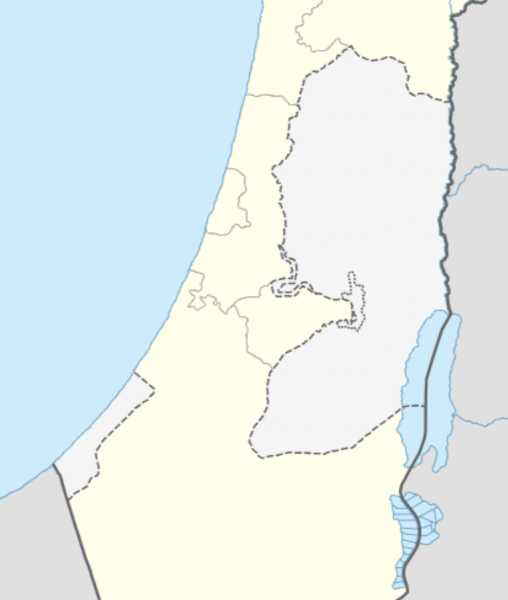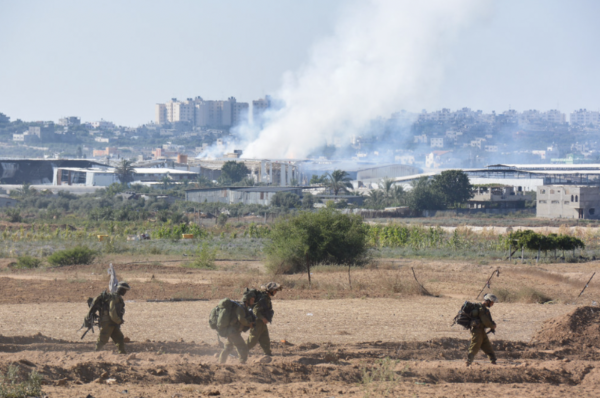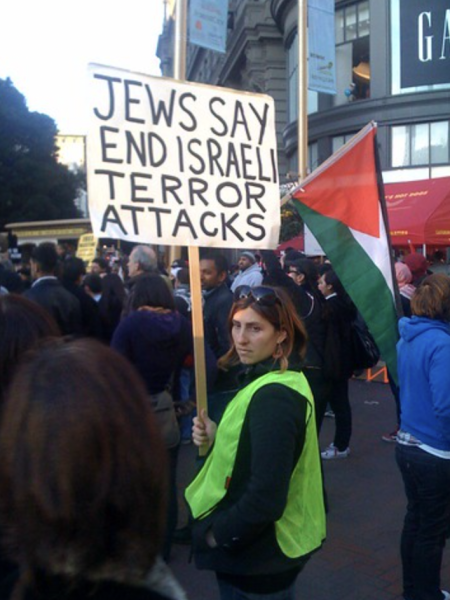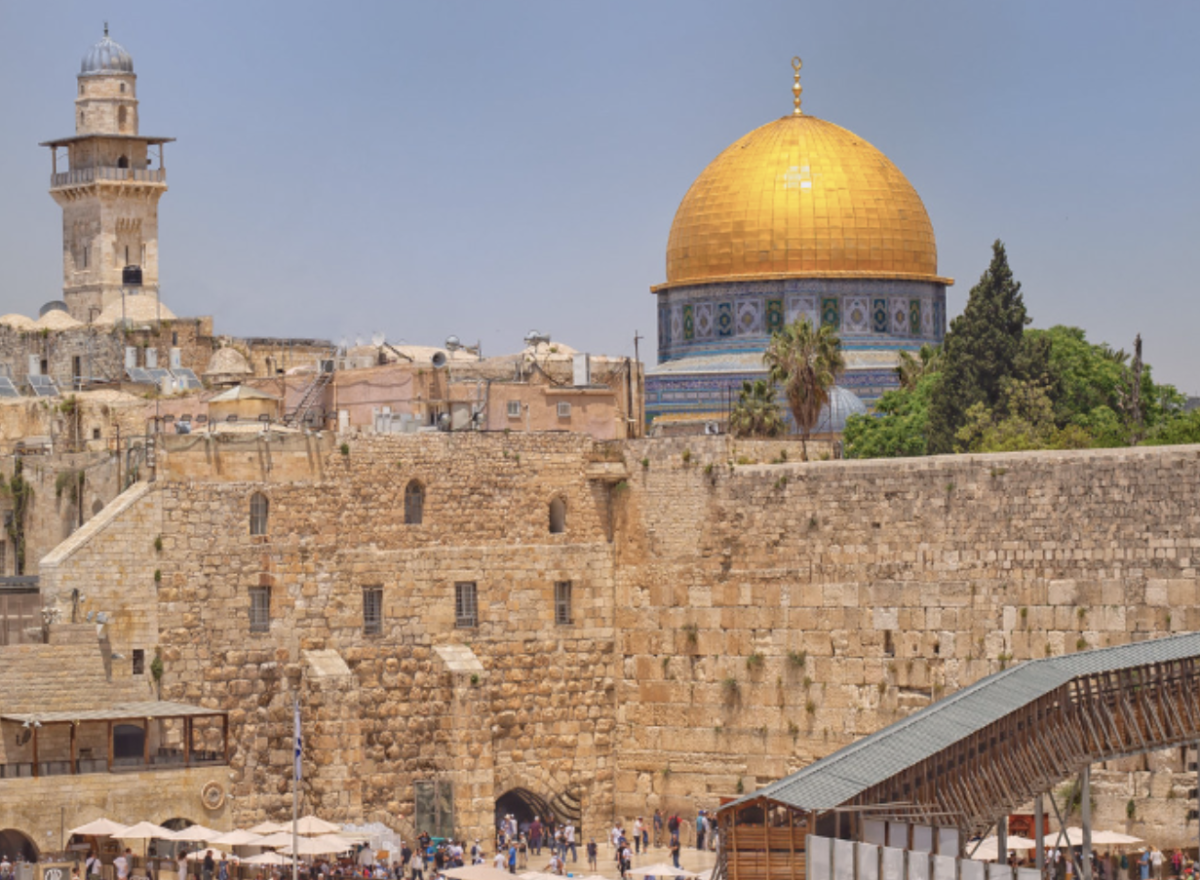On October 7, a decades-long conflict reignited between Israel and Palestine as Hamas, a militant group that has vowed to annihilate Israel, launched an invasion into the Israeli territory bordering Gaza. Israel has responded with force, and the war has only intensified since then.
In 1948, the UN established Israel as a new nation for the Jewish people, just three years after the Holocaust devastated European Jews. This new nation was located on land where the Jewish people had centuries-old connections. The establishment of Israel and the subsequent Arab-Israeli War resulted in the “Nakba,” the displacement of around 700,000 Arab Palestinians, mainly Muslims.
In 1948, 1967, and 1973, multiple Arab nations fought and lost wars with Israel, leading to Israel gaining more territory from Palestine and its neighbors. There have been attempts at a two-state solution, such as the Oslo Accords, in which both Israel and Palestine can exist. However, none have worked, and both sides are still at odds.
One particular flash point is Jerusalem, one of the holiest places in Judaism and Islam. Jerusalem is home to the Western Wall, the holiest prayer site in Judaism and a remnant of the famed Temple of Jerusalem, and the Dome of the Rock, a gold-plated structure constructed by Muslims in the 7th century.

Israel and Palestine have fought over Jerusalem for decades due to its religious significance. Currently, Israel administers Jerusalem, but Palestinians want East Jerusalem to become part of Palestine.
In 2007, Hamas violently took control of Gaza, which was originally in Egypt. Since then, Israel has blockaded the Gaza Strip. There have been multiple conflicts involving Israel and Gaza, but none on the scale of the current conflict.
In October, Hamas launched a surprise attack on Israel, entering several kibbutzim (Israeli agricultural communities). Hamas targeted the Nova music festival as well, killing hundreds of people. By the time Israeli forces finally regained control, Hamas had left a trail of carnage. Around 1200 residents were murdered indiscriminately, and 240 people were kidnapped and taken to Gaza as hostages by Hamas militants. October 7 was the deadliest day for Jews since the Holocaust.
Evidence emerged of widespread sexual violence committed by Hamas that day. Multiple eyewitness accounts from the Nova music festival described horrific scenes of rape by Hamas terrorists, and forensic experts have concluded that several bodies show evidence of rape and sexual violence.
In response to the Hamas attack, Israeli Prime Minister Benjamin Netanyahu declared war on Hamas. Israel bombarded Gaza with airstrikes and blocked the entry of food, water, and fuel into Gaza. Soon after, Israel’s military told 1 million Palestinians in northern Gaza to evacuate south, two weeks before an expected invasion of the Gaza Strip.
On October 27, the Israel Defense Forces (IDF) launched a ground invasion of Gaza to destroy Hamas, accusing the group of using civilian buildings, like schools and hospitals for military purposes. Israel also wanted to destroy Hamas’s extensive network of hidden tunnels, used to store weapons and transport Hamas militants.

The cost of the war has proven costly for Palestinians in Gaza. Almost two million have moved to southern Gaza and crowded into overwhelmed shelters to escape the fighting. Only 15 out of 36 Gazan hospitals are still open, and even those are only partially functioning without much of the supplies they need. Palestinian refugees face malnutrition because, without fuel, shops cannot provide food to them.
Adding to the misery, Palestinians cannot leave Gaza. Because of Israel’s blockade, the only way out of Gaza is through its border with Egypt. However, Egypt refuses to open its borders to Palestinian refugees, for fear of becoming more involved in the war. This situation leaves Palestinians stranded in dangerous circumstances.
Between November 24 and December 1, both Israel and Hamas agreed to a temporary ceasefire. During the truce, Israel released Palestinian prisoners, and Hamas agreed to free some of the Israeli hostages. In total, 105 hostages were freed, in exchange for 240 Palestinian prisoners. The truce broke on December 1, and fighting resumed.
Many nations have called for a ceasefire. At a United Nations General Assembly emergency special session, 153 countries voted for a ceasefire in Gaza. However, the United States is one notable exception. The US has stood behind Israel, using its seat on the UN Security Council to veto a resolution calling for a ceasefire. On a visit to Israel, US President Joe Biden announced, “I come to Israel with a single message – you’re not alone.”

The war’s effects have hit closer to home in the Bay Area. On November 16, over 200 pro-Palestine protesters shut down traffic on the Bay Bridge during the APEC summit to demand President Biden call for a ceasefire in Gaza. Hundreds of pro-Israel protestors also gathered in San Francisco to call for bringing Israeli hostages home. Additionally, on January 9, the San Francisco Board of Supervisors voted 8-3 to approve a resolution calling for a ceasefire in Gaza, a move criticized by Mayor London Breed.
The conflict shows no signs of stopping and has only intensified. After capturing most of northern Gaza, the IDF has turned its focus to the south. As of January 15, over 20,000 Palestinians and Israelis have been killed, and the death toll on both sides of the conflict will only continue to grow. The war has dramatically reshaped the future for both Israelis and Palestinians, and the effects will redefine both societies for years to come.
Here is what SHC students had to say:
“Without research, many students throughout San Francisco are screaming from the streets, ‘From the river to the sea, Palestine will be free.’ However, what they often do not realize is that this calls for the elimination of a Jewish state: a safe place for us to go whenever we get prosecuted. For decades and generations, we have been persecuted from every single country and not been allowed in during times of war and dispute … As a Jewish person living into today’s society, it is atrocious to see people chanting for the elimination of Jews, when they do not even know what they’re saying. Without research, they turn out to be anti-Semitic, calling for [the] death [of] my people. I believe that every religion [and] ethnicity has a right to exist, without any discrimination or hate. I stand against any physical or verbal abuse the Jewish people have to take from protesters who spout disgusting words at them. Harassing someone for their religion is never OK.” – Julia Gulchin ‘24
“It’s really hard to say who’s in the right because both Israel and Palestine are fighting for land they see as historically and religiously significant to their people. Nevertheless, I support our city’s advocacy for a cease-fire. The genocide and violence from this war is unacceptable, and I hope Israel and Palestine can come up with a solution civilly.” – Courtney Mar-Lew ‘24
“It’s not a war. It’s a genocide. Palestine doesn’t even have a military and all the attacks on the Palestinian people have been just that: attacks on the Palestinian people … Going over South Africa’s accusations regarding Israel’s war crimes will inform you heavily on this topic and give you the precise reasoning why Hamas even exists in the first place. [Israel is defending itself against nothing.]” – Sophia Valladares ‘24
“Given the current ongoing conflict, I believe the Israel-Hamas War concerns many people around the world regarding the devastating impact on the innocent civilians and families involved and that it is important to acknowledge them. As someone who is against the war, I want to recognize and support the lives of all innocent civilians suffering under the Israel-Hamas conflict, as well as advocate for finding a peaceful solution to the conflict.” – Eric Huy Huynh ‘24
“It’s really difficult to form my own opinion. Some of my Jewish friends are losing friends, and I keep seeing devastating posts about Gaza. I feel like if I say anything or take a stance in any way, I will either lose friends, it won’t do anything, or I will be misinformed. I’ve been trying to do my own research, but because it’s such a controversial and complex topic, I’m really not sure what to say or do. As of right now, I support Gaza but I also support the Israeli people. What I do NOT support is the killing of innocent people. I don’t care what the issue is, killing one or millions of innocent children, women, and men is never OK.” – Sam Meraw ‘25
“I think that while Hamas is awful and [must be stopped], Israel shouldn’t kill thousands of innocent Palestinian civilians and children while trying to take them out. If a shooter walked into a school full of children, would the police bomb the school to take out the shooter? No one should fund the IDF when it’s the innocent people they’re killing that really need help. Also, people should learn more about the conflict, which is really complicated and has been going on for decades.” – Katie Worster ‘26
To get involved, you can donate to Doctors Without Borders, the International Committee of the Red Cross, the International Rescue Committee, and Save the Children, all of which are currently providing humanitarian aid in Israel and Gaza.








